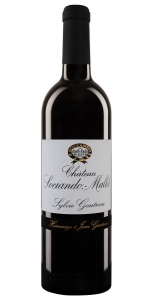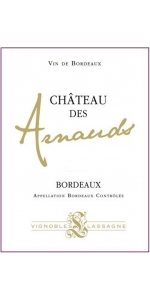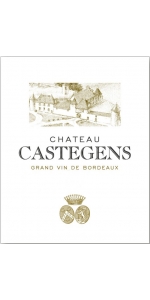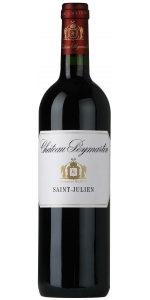Château Bernadotte Haut Médoc 2004
| Country: | France |
| Region: | Bordeaux |
| Grape Type: | Cabernet Sauvignon |
| Vintage: | 2004 |
| Bottle Size: | 750 ml |
All older vintage wines have been purchased from a single collectors cellar. Pictures can be requested before shipment.
All older vintage wines have been purchased from a single collectors cellar. Pictures can be requested before shipment.
All older vintage wines have been purchased from a single collectors cellar. Pictures can be requested before shipment.
All older vintage wines have been purchased from a single collectors cellar. Pictures can be requested before shipment.
Sociando Mallet Haut-Medoc is made from 53% Merlot, 46% Cabernet Sauvignon and 1% Cabernet Franc.
Château Sociando-Mallet produces full-bodied wines with a deep, dark color. The complex bouquet is dominated by red and black fruit aromas with a touch of minerality, floral and spicy notes. Fresh, harmonious and nicely balanced in the mouth with a solid tannic structure and good acidity that promises a long aging potential. The mid-palate is pleasant with a nice density of fruit. A silky and fruity finish.
Red meat, dishes in sauce, poultry, strong goat or cow cheeses.
Chateau Arnauds des Bordeaux Rouge is made from 100% Merlot.
The wine shows a deep red purple color and intense aromas of black fruits (blackcurrant, black cherry) with hints of liquorice. Very fruity and well-balanced. It is powerful and well structured in the mouth with round and silky tannins, ripe flavors of black fruits. Strong and a slightly spicy finish.
Grapes are coming from 30 year old vines planted on gravelly soils.
The land benefits from sun exposure, warmth and humidity that are strong assets for the vine culture.
The wine pairs well with game meat and beef on the grill.
Chateau Castegens Cotes de Bordeaux Castillon is made from 80% Merlot, 18% Cabernet Franc and 2% Cabernet Sauvignon.
The wine boasts an intense, deep and lively red color. The nose offers black fruit, blackberry, cigar box, licorice, some delicate and integrated oak flavors as well. The mouth is full of fruit flavors, spice and fine toasty flavors. The structure is rich, but the tannins are well integrated already. The finish is long and a slight mintiness give the wine a great length and some purity.
Pairs great with meat and vegetables on the grill.
Chateau Peymartin Saint-Julien is made from 65% Cabernet Sauvignon, 25% Merlot, 5% Petit Verdot.
Peymartin is the second wine of Gloria, produced using the youngest vines (average 40 years-old) on the estate.
After a manual harvest, the grapes are vinified in thermo regulated stainless steel vats with malolactic in barrel. Peymartin spends approximately one year in cask followed by additional aging at the estate in bottel prior to release. The ensuing style of wine is typically a lighter and more elegant St. Julien, known for its early drinkability and charming character.
Tasting Notes:
Deep ruby-garnet in appearance, Peymartin is classic left-bank Bordeaux. Aromas of dried tobaco, cedar, blackcurrant, and pungent cooking spices greet the nose. The palate is extremely elegant with ripe, yet structured tannins balanced by firm acidity, black fruits, savory earth, and hints of toasted vanilla. A balanced and persistent finish underlines the wine's quality as well as its ability to hold up in bottle.
- back
Kinsella Estates Heirloom Cabernet Sauvignon is made from 100% Cabernet Sauvignon
20 months in French Oak (75% New)
Organic made.
Intense was the first word that came to mind. Purely focused tannin weaves its way through the core of this wine. Has a savory characteristic that we have found in past vintages (2014 to be specific) with a slight licorice note on the exceptionally long finish. While this vineyard has been described as “feminine” in the past, that is certainly not the case for this bigger, bolder vintage!
Jean Reverdy Sancerre Blanc is 100% Sauvignon Blanc
Single vineyard. Vinification: cold fermentation in stainless steel tank, no oak, no malolactic fermentation.
Sweet, fruity and clean. White flowers (acacia, jasmine) and citrus fruits aromas. Perfectly balanced.
A delicious wine, perfect with fish dishes, especially salmon, and a local goat cheese Crottin de Chavignol.










